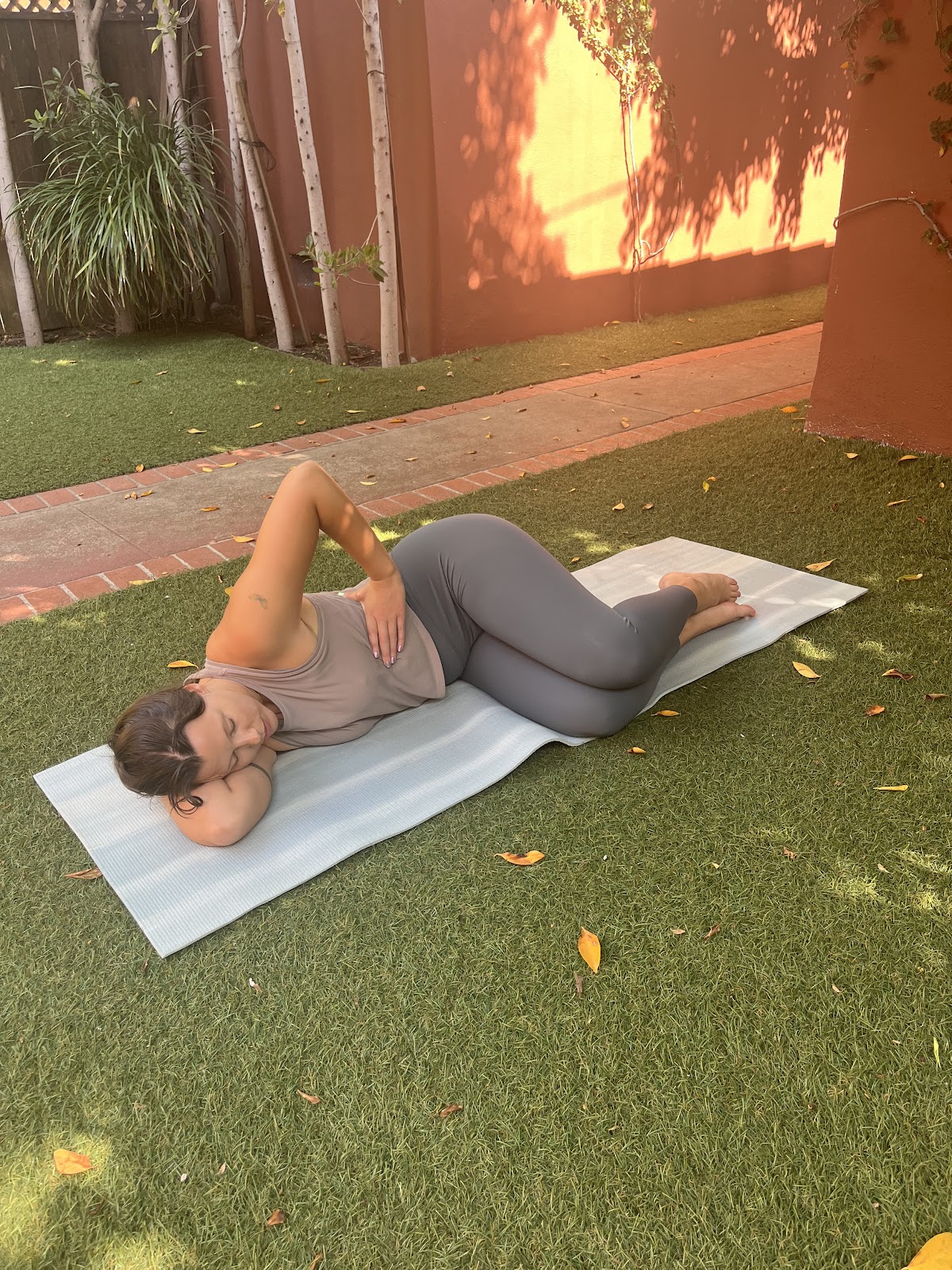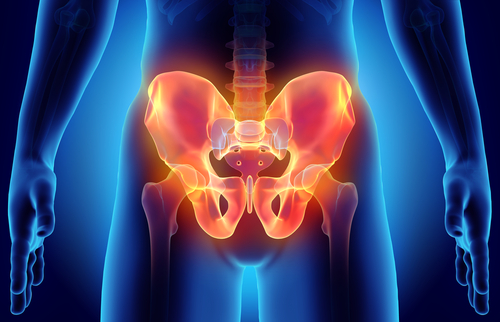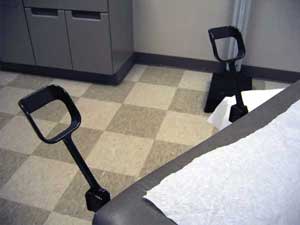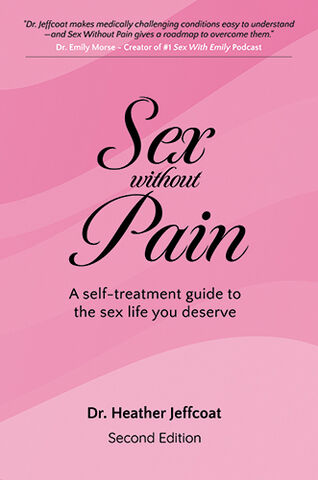
The Femina Physical Therapy Blog
Featuring original articles by our staff about current events and trends
Explore our insightful blog articles on pelvic health, where we delve into essential topics that empower and educate. From understanding pelvic floor disorders to strategies for conquering infertility, our content is designed for those seeking knowledge and support. We discuss the latest research, expert advice, and practical tips to enhance your well-being and foster a deeper connection to your body.
Featured From the Blog:
Treating Bloating and Abdominal Distension: a Multi-Disciplinary Team

Why a Multi-Disciplinary Team is Best for Treating Bloating and Abdominal Distension
Bloating, abdominal distension, loose stools, constipation, abdominal or pelvic pain, fatigue, brain fog, weakness, nutritional deficiencies… these symptoms may be caused by a variety of gastrointestinal or pelvic conditions. If you are experiencing any of these symptoms, this article is a good place to start when deciding who to have on your care team, and what treatments can help!
Running Mechanics and Pelvic Floor Health: The Impact of Footwear

Did You Know That Proper Footwear Can Improve Your Running Mechanics and Pelvic Floor Health?
How Do My Feet Impact My Pelvic Floor When I Run?
If you are a runner, you tend to look for ways to improve your running. If you’re thinking about starting up or returning to running, it can feel intimidating particularly if you have any symptoms related to pelvic floor dysfunction. This only complicates an exercise that, on the surface, seems fairly straight forward. There are some studies that have looked at how your feet can play a part in your pelvic floor muscle function while you run. And if you are looking to return to running postpartum, read on and also check out this article by one of our pelvic floor physical therapists.
Read more: Running Mechanics and Pelvic Floor Health: The Impact of...
Restorative 20 Minute Home Yoga Practice For Chronic Pelvic Pain

Yoga Practice For Chronic Pelvic Pain Can Be a Very Helpful Routine
As stated in my last blog post, yoga can be so beneficial as a pain management tool due to its ability to modulate the sympathetic nervous system3,4 which plays a large role in chronic pain. The exact mechanism of how yoga helps with chronic pain is still being studied, however, it is reasonable to believe the full body relaxation promoted by a yoga practice helps to decrease tension in key muscle groups- including the hips and pelvic floor which are often tight in people with chronic pelvic pain.
Currently, evidence has mostly focused on one hour long practices as an intervention, although there are some studies that report improvements in pain with shorter practices, such as the routine below. As with any mobility/stretching routine, benefits will be seen with more frequent practice, however even twice weekly can help decrease pain.
Read more: Restorative 20 Minute Home Yoga Practice For Chronic...
- Details
- Written by: Staff
- 11340 Views

What is pelvic floor physical therapy?
When you are suffering from neck or shoulder pain, it is common to go see a physical therapist to help correct any issues with like alignment, movement, strength, and flexibility to reduce pain and improve function. Pelvic floor physical therapy is performed by physical therapists with advanced training to help correct those same issues in the pelvis, lower extremities, spine, and abdomen.
Pelvic floor muscles: What are they?
The inside of the pelvis is lined with muscles referred to as the pelvic floor muscles, these muscles are made of the same types of muscle tissue as other parts of the body, like the neck or shoulder. Similarly, the pelvis is home to ligaments, nerves, fascia, and bones, just like other parts of the body. Pelvic floor physical therapy utilizes an inegrative approach to get all of these functions working together as they should.
Read more: What is Pelvic Floor Physical Therapy and How Can it Help...
- Details
- Written by: Staff
- 4524 Views

The Common Links Between Endometriosis and Painful Sex
Pain, fatigue, and other symptoms associated with endometriosis can affect quality of life, including sexual health and happiness. In fact, a study published last year found that patients with endometriosis have more than twice the sexual dysfunction as compared to women without the disease (Fairbanks, Abdo, Baracat & Podgaec, 2017). Below is a list of common sexual health problems associated with endo and some strategies to help:
Diminished sexual desire
Some people with endometriosis report that pain and fatigue can be better or worse at certain times of the month. Keeping a diary can help identify patterns of pain associated with the cycle. Estrogen levels peak during ovulation, usually day 12-15 of the cycle, leading to higher pain levels for some with endometriosis. Knowing how your body feels during different parts of the cycle can help you make decisions about when to engage or avoid in sex to manage your pain.
- Details
- Written by: Staff
- 6275 Views

Yoga and Pregnancy Together Can Increase Your Quality of Life During Pregnancy and After
We offer a yoga therapy program tailored specifically to pregnancy at Femina/Fusion Wellness PT. At the end of this article is a link to more blog posts highlighting how yoga can mesh well with issues like pelvic floor dysfunction, pelvic pain, and pregnancy.
Why Integrate Yoga and Pregnancy?
Modified, gentle, and restorative yoga practices can be a fantastic addition to physical activity during pregnancy. Yoga can also give an opportunity for mamas to listen to their bodies, gain stamina and the courage needed for labor and motherhood. Whether you start practicing yoga after you get pregnant, or you already have a practice, yoga also helps you to consciously connect to the process of nature and your baby and prepare you for your birth.
Read more: Yoga and Pregnancy | Increase Quality of Life During and...
- Details
- Written by: Staff
- 11897 Views

Happy National Condom Week!
Are you suffering from recurrent pelvic inflammatory disease and/or chronic pelvic pain? Condoms may help reduce the risk.
Condoms are an effective barrier method of contraception (82% effective, according to the CDC) and reduce the spread of sexually transmitted diseases (STDs) including HIV, gonorrhea, and Chlamydia.
There are other benefits. Regular condom use with intercourse may also help the risk of recurrent Pelvic Inflammatory Disease (PID), Chronic Pelvic Pain (CPP), and Infertility. According to the 2004 study by Ness, Randall, Richter, et al., consistent condom users had 50% reduced risk for recurrence of PID, 30% reduced risk for chronic pelvic pain, and 60% reduced risk for infertility due to PID.
Read more: Condoms May Help Reduce Risk for Recurrent Pelvic...
- Details
- Written by: Staff
- 164167 Views

Science based recommendations and how therapy can help decide between missionary and doggy style
Does sex give you a backache? Do you avoid sex due to your low back pain?
If you are thinking “YES,” you are not alone. In a study by Bahouq et al. in 2013, 81% of clients with low back pain reported sexual problems and 66% of those clients reported never bringing the subject up with their doctor. As we all know, sex is an important activity for many. Today’s post will shine a light on the latest science based recommendations sex positions for those with low back pain and how the therapists at Femina PT can help.
Read more: Does Sex Give You a Backache? When to Choose Missionary...
- Details
- Written by: Staff
- 7839 Views

Sexual Problems and Cancer Treatment
It's Cervical Health Awareness Month!
Sexual problems are a side effect of cancer treatment that oncologists don’t often talk about, but there are treatments to help, including the pelvic floor therapy that we do at Femina PT. Surgery, chemotherapy, radiation, hormonal therapy, stem cell transplantations, and other procedures can negatively affect quality of life, including sexual health and happiness. These side effects are not limited to cancers of the sexual organs either. Cancer treatment anywhere in the body (cervix, breast, throat, GI tract) can lead to changes in sexuality.
- Details
- Written by: Staff
- 6100 Views

Stressing the Importance of Cervical Health Awareness
Is Pain with Penetration Preventing you from getting a Pap test?
January is a great time to make resolutions, fresh starts, and to start committing to self-care! It is also Cervical Health Awareness Month. Today we chat about the Pap test. If you are an adult with female anatomy living in the United States, chances are you have heard the term “Pap test” or “Pap smear.” But why they are important and what can you do if you can’t tolerate a gynecological exam with a speculum?
I can’t stand having a speculum placed in my vagina. What can I do?
Pelvic floor issues such as vaginismus, vulvodynia, and vulvar vestibulitis can make it hard to have anything inserted into the vagina. Be it a penis, tampon, or a speculum, commonly reported symptoms include intense burning and stinging, sharp pain, a feeling that you “will tear,” or like you are “hitting a wall.” These are all conditions that are treatable at Femina Physical Therapy. Our therapy along with your healthcare team can help restore your ability to take care of your reproductive health as well as your sexual health and pleasure.
- Details
- Written by: Heather Jeffcoat, DPT
- 9071 Views

Have You Ever Asked "What's Up Down There, Doc?"
Pelvic floor physical therapy is one of the best kept secrets in medicine.
I was on a recent plane flight and sat next to two women that were very chatty with one another. They quickly swept me up into their conversation. Inevitably, in situations like this, everyone asks “So what do you do for a living?”. My answer used to be “I’m a physical therapist”. The past couple of years, my standard response is “I’m a physical therapist, but let me tell you about what kind of physical therapist I am”. Then I go into the diagnoses I treat related to bowel, bladder and sexual health and, in general, how I treat them. Across the board, their reaction is a mix of astonishment and genuine interest. The follow up dialogue is always eye-opening for them, and more often than not, they will report either knowing someone close to them as having one of these pelvic floor issues, or they have it themselves.












